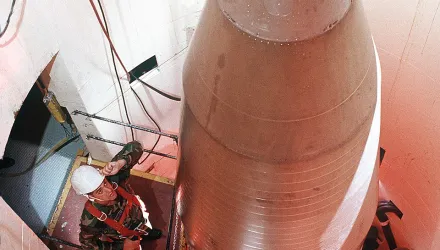Do the executives of great powers formulate and work to implement grand strategic plans? Or are great powers' grand strategies the products of Congressional/legislative, bureaucratic, and/or interest group politics? The latter explanations are overwhelmingly emphasized in the existing literature on explaining grand strategy. Surprisingly little attention has been paid to the logically prior question of the extent to which great powers' grand strategies are the products of the deliberate strategic planning of their executives.
This presentation examines this question by applying it to a case in which one would expect to find little grand strategic planning: the response of the United States to the rise of China after 9/11. This is a "hard case" because it would be especially unlikely to find that the executive planned grand strategically in response to China's rise while it was focused on planning and prosecuting the wars in Afghanistan and Iraq. Indeed, scholars consistently claim that the United States was distracted from attending to the rise of China by the War on Terror. Contrary to these claims, Research Fellow Nina Silove finds that the United States had developed a long-term, holistic, and relatively integrated strategy in response to China's rise, and that this strategy was substantially enacted as planned in the 2004–2012 timeframe.
Please join us! Coffee and tea provided. Everyone is welcome, but admittance will be on a first come–first served basis.




